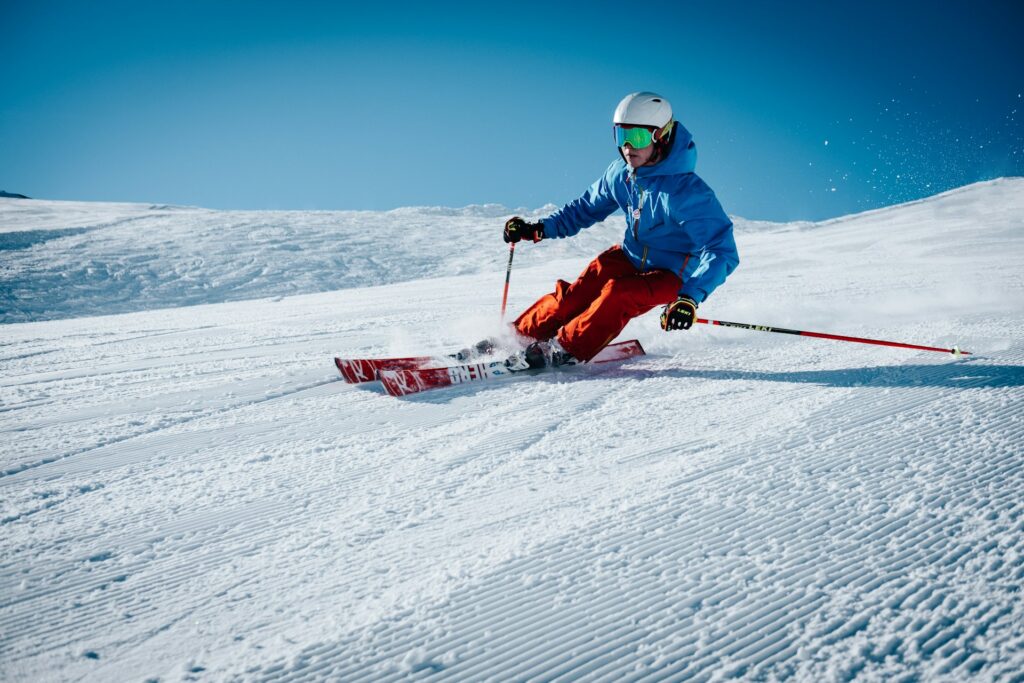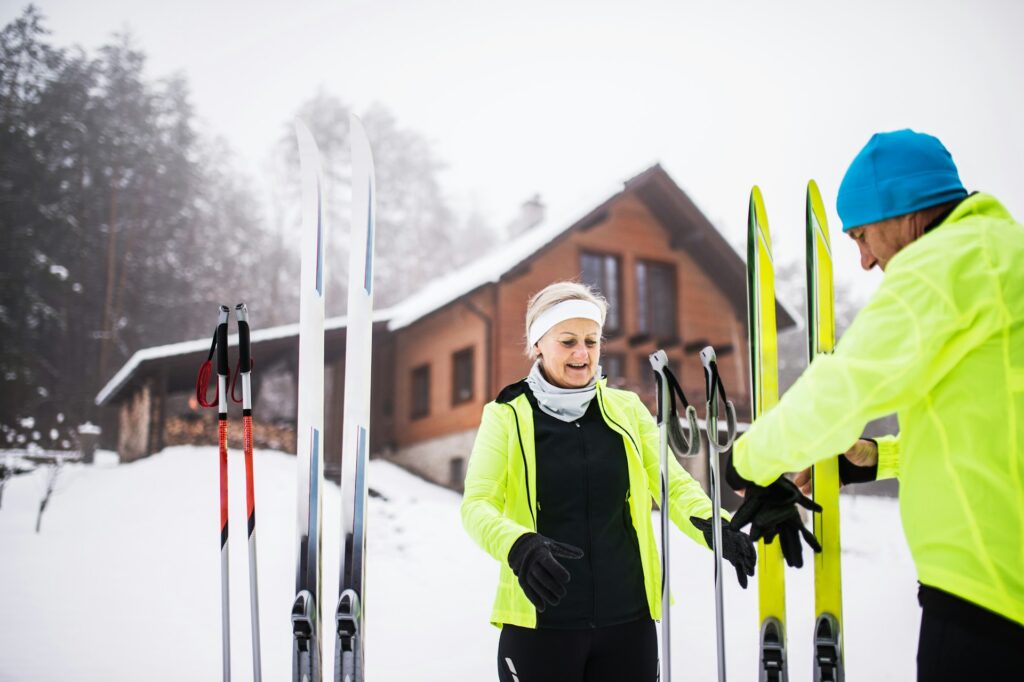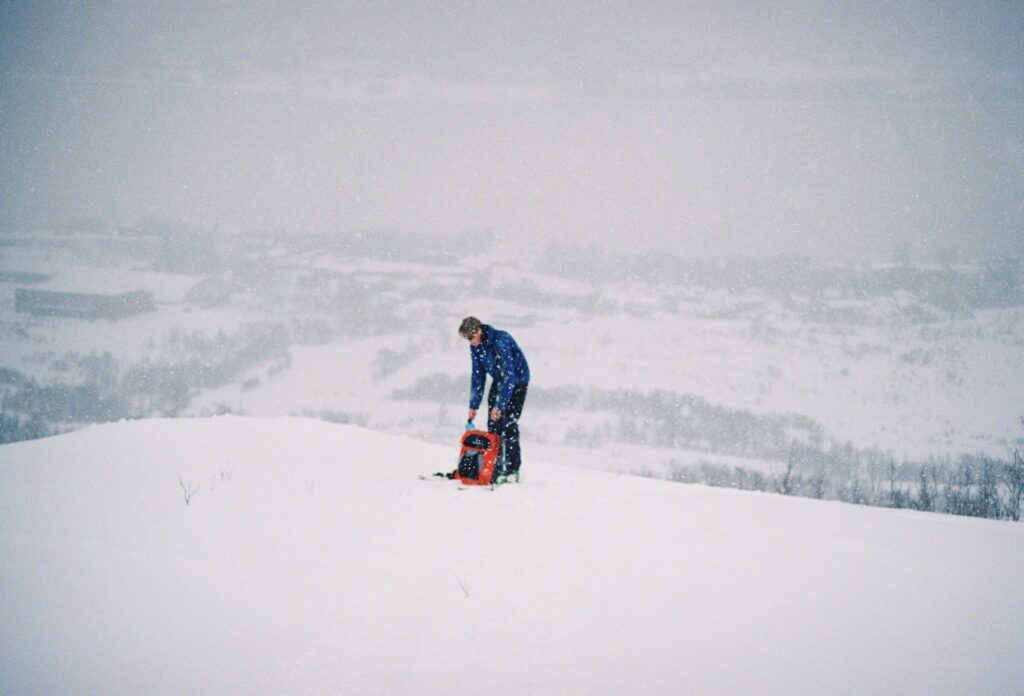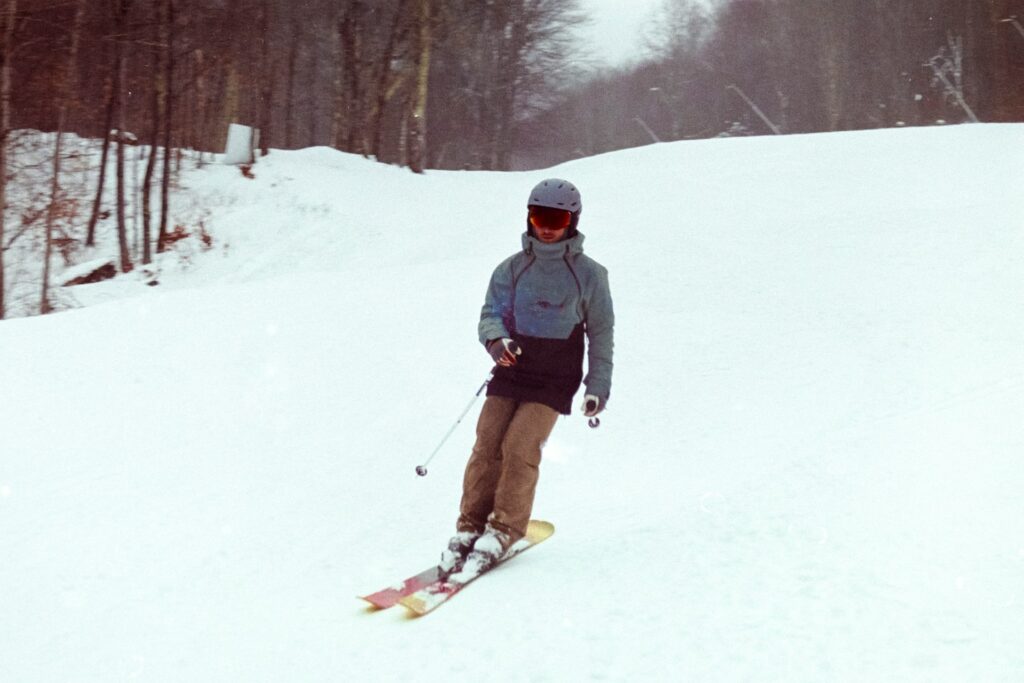If you’ve ever found yourself mid-ski run thinking ‘I could do this every day’, you’re not alone. What starts as a passion for powder often transforms into something more: a career that swaps office views for alpine vistas and commutes for chairlift rides. Whether you’re considering a gap year, seeking seasonal work, or contemplating a complete career change, becoming a ski instructor offers a genuine pathway to turning your love of skiing into a livelihood.
Whether you’re taking a gap year, seeking seasonal work, or planning a full-time career on the slopes, becoming a ski instructor is an exciting and genuinely achievable goal that combines your passion with professional development.
Understanding The Qualification System
To work as a ski instructor, you’ll need professional certification. According to courses and internships provider the Winter Sports Company, most instructors begin with a Level 1 or Level 2 qualification.
The British Association of Snowsport Instructors (BASI) offers internationally recognised qualifications from Level 1 through to the elite Level 4.
BASI Level 1 is perfect for beginners, allowing you to teach at indoor slopes and under supervision at mountain resorts. Level 2 opens doors to teaching internationally at ski schools across Europe, Canada, Japan, and beyond. Each level builds your technical skills, teaching ability, and mountain experience.

What Training Actually Involves
Entry-level courses combine practical skiing development with teaching methodology. You’ll perfect your technique whilst learning to break down complex movements into digestible steps for students.
Training covers technical skiing skills across various terrain and conditions, teaching approaches that work for different age groups and abilities, safety and risk management including avalanche awareness, and even child psychology for those teaching younger skiers. The assessment process is continuous throughout the course, with trainers observing your progression rather than expecting perfection from day one.
Most Level 1 courses run for 4-6 weeks, whilst Level 2 typically lasts 8-12 weeks. Being physically prepared makes an enormous difference to your success on an intensive course.

Choosing Your Training Location
Where you train can significantly impact your experience. Canada offers friendly, English-speaking environments with reliable snowfall. France and Switzerland provide the classic Alpine experience, though France requires the additional Test Technique qualification to teach professionally.
New Zealand offers training during Europe’s summer, allowing year-round employment by working opposite hemispheres.
Japan has become increasingly popular for powder enthusiasts, with resorts like Niseko welcoming English-speaking instructors. Each location offers distinct advantages in terms of snow quality, resort culture, and future employment opportunities.
Understanding Costs & Timelines
Course costs vary significantly by location and provider. Expect to pay £4,000-£7,000 for Level 1 courses and £6,000-£10,000 for Level 2, typically including accommodation. These prices reflect the intensive nature of training, with daily instruction from qualified trainers and access to resort facilities. Additional expenses include lift passes (£500-£800 for the season), equipment rental or purchase if you don’t own suitable gear, and travel costs to your chosen resort.
Many providers offer job placement support or guaranteed interviews at partner resorts. Some packages include paid internships following qualification, allowing you to recoup costs whilst gaining experience – much like career transitions in other skilled professions.

What You’ll Actually Earn
According to industry salary data, entry-level instructors typically earn £10-£20 per hour, with experienced instructors commanding upwards of £30 per hour depending on location and qualifications. Canadian instructors benefit from North American tipping culture, whilst Swiss resorts offer higher hourly rates to match the country’s cost of living.
Many instructors supplement income with evening hospitality work during quieter periods. The reality is you won’t become wealthy, but many find the lifestyle rewards compensate for modest financial returns.
Essential Skills Beyond Skiing
Skiing ability is just one component. The best instructors combine technical prowess with patience, clear communication, observational skills and judicious attention to safety. You’ll need confidence managing groups, adaptability for different learning styles, and cultural sensitivity when working with international clients.
Physical fitness matters enormously. Teaching skiing uses different muscles than recreational skiing, as you’ll spend days skiing slowly behind students or demonstrating techniques repeatedly.
The Reality Of The Job
Working as an instructor involves both highs and challenges. You’ll teach in stunning environments with like-minded people, but you’ll also spend many days on nursery slopes demonstrating snowploughs. Weather can make teaching uncomfortable, and you’ll work weekends and holidays when demand peaks.
The international resort community creates unique social opportunities, with lifelong friendships often formed during a single season. However, the work is physically demanding and sometimes frustrating when students struggle with basic concepts.

Getting Your First Position
Landing your first role is often easier than expected, especially with training provider resort partnerships. Most resorts begin recruiting in May-June for winter seasons, with positions filling by September. Being flexible about location for your first season significantly improves chances.
Emphasise any teaching, coaching, or customer service experience. Language skills prove particularly valuable at international resorts. Demonstrate enthusiasm for the mountain lifestyle and flexibility regarding accommodation arrangements.
Building A Long-Term Career
Many instructors work seasonally whilst pursuing other careers during summer. However, pathways exist to year-round employment: teaching opposite hemispheres, progressing into resort management, specialising in adaptive skiing or race coaching, or becoming a trainer and examiner for qualification bodies.
The transferable skills you develop – communication, leadership, risk assessment, cultural adaptability – prove valuable in numerous careers if you eventually transition away from the slopes.
The Bottom Line
Becoming a ski instructor isn’t about financial security or conventional career progression. The pay isn’t exceptional and job security is minimal. However, if you value experiences over earnings and want to turn your passion into your profession, few careers offer comparable lifestyle rewards.
You’ll wake in mountain villages, spend working days doing what others pay thousands for on holiday, and build a global network of friends. Becoming a ski instructor is about embracing adventure and creating unforgettable experiences in spectacular settings.
If the mountains are calling, there’s no better time to answer. Your career on the slopes could start with just one decision: to turn your love of skiing into a profession that takes you around the world.





